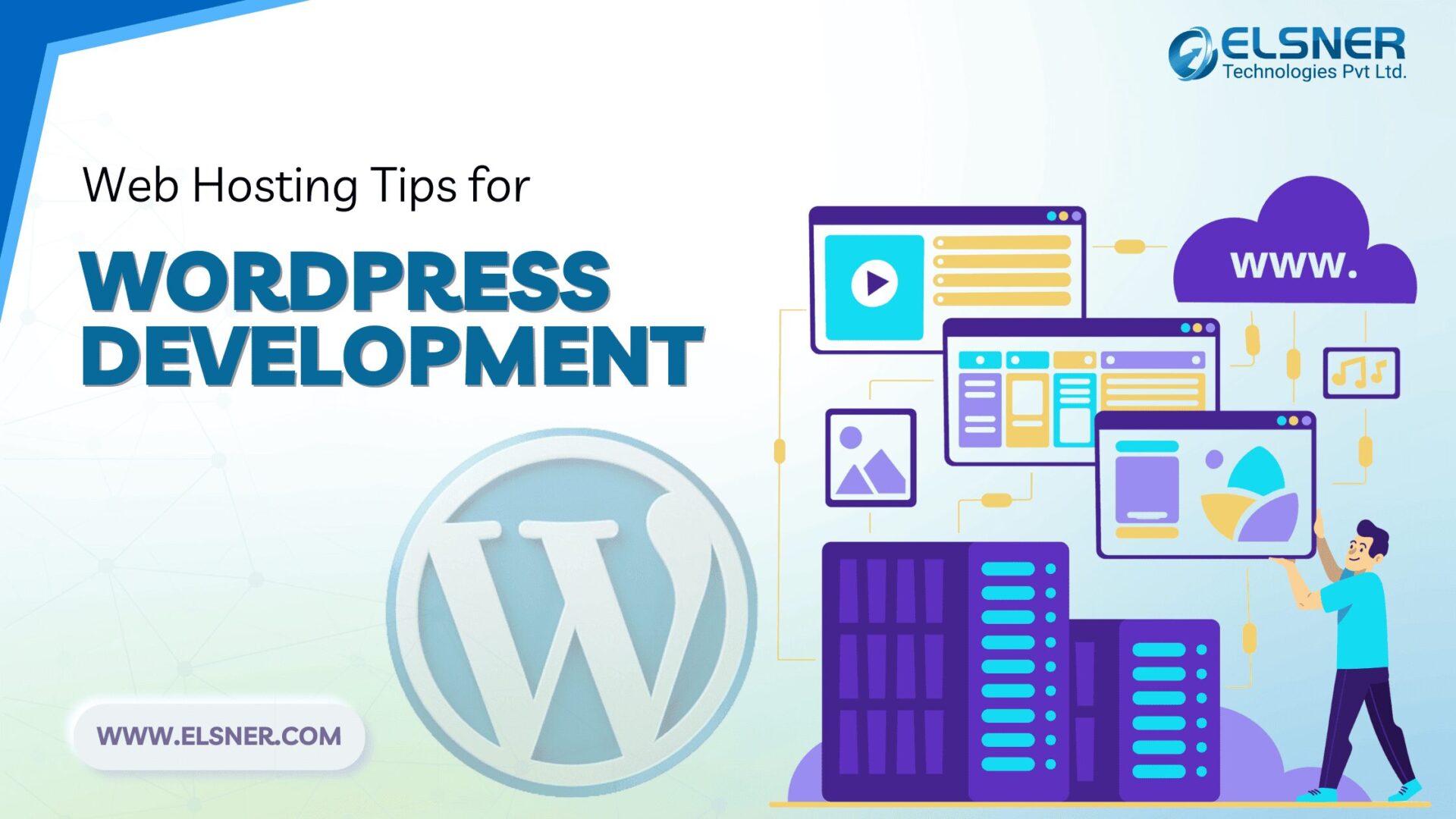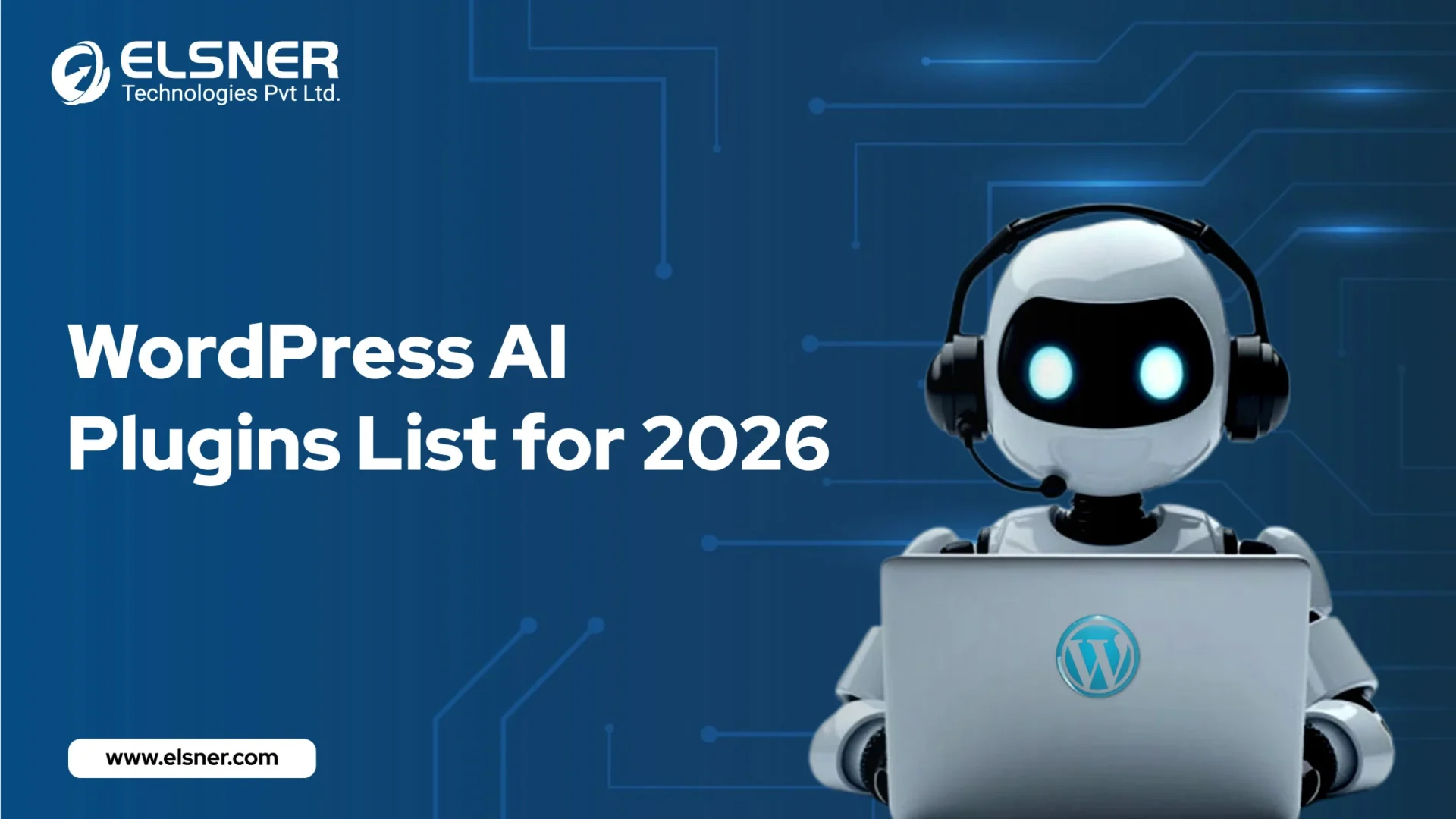- What are the Different Types of WordPress Hosting?
- Shared Hosting
- VPS and Cloud Hosting
- Managed WordPress Hosting
- Dedicated Hosting
- Key Factors to Consider When Choosing WordPress Hosting
- Performance and Speed
- Reliability and Uptime
- Scalability and Growth Readiness
- Security Features
- Ease of Use and Management
- Web Hosting Tips for WordPress Websites in 2026
- Choose WordPress-Optimized Hosting
- Avoid Budget Hosts That Compromise Performance
- Evaluate Infrastructure Over Pricing
- Verify Backup Frequency and Restore Access
- Confirm Modern WordPress Compatibility
- Test Support Before Committing
- Read Terms Carefully
- How to Choose the Best WordPress Hosting for Your Website?
- Matching Hosting Type with Website Needs
- Evaluating Hosting Based on WordPress Requirements
- Signs You Need to Switch Hosting Providers
- Best Hosting for WordPress: What to Look for in a Provider?
- WordPress Performance Optimization
- Proactive Security Practices
- Responsive and Knowledgeable Support
- Transparent and Fair Pricing
- Proven WordPress Track Record
- Room for Growth
- Common Mistakes to Avoid When Choosing a Web Host
- Choosing Based Only on Price
- Ignoring Future Scalability Needs
- Overlooking Security Features
- Skipping WordPress Compatibility Verification
- Underestimating Support Quality Importance
- Falling for Unlimited Claims
- Not Reading the Contract Terms
- Checklist: WordPress Hosting Selection Guide (2026)
- Conclusion: Make an Informed Hosting Decision for Long-Term Success
- Frequently Asked Questions
- Does hosting impact SEO?
- Is managed WordPress hosting better?
- Can hosting affect conversions?
Your hosting provider determines whether your WordPress site succeeds or struggles. Think about the last time you left a website because it loaded too slowly; most visitors do the same. Google now treats page speed as a ranking factor.
Many WordPress owners blame their theme or plugins, but poor hosting is often the real issue. Pages drag, sites go offline, and security vulnerabilities appear.
In 2026, users expect instant results, competitors are just one click away, and search algorithms are stricter than ever. Hosting isn’t just about storing files, it’s the foundation for speed, security, and growth.
This guide shows you how to choose a web host that truly supports your WordPress site and which hosting options to avoid. So, let’s dig in:
What are the Different Types of WordPress Hosting?
The hosting market offers several options. Each serves different needs. Picking the wrong type costs you time and money later.
Shared Hosting
Shared hosting puts your site on a server with dozens or hundreds of other websites. Think of it like renting a room in a crowded apartment building.This works for:
- Brand new websites testing ideas
- Personal blogs with minimal traffic
- Small local business sites
The problems show up as you grow. Your site shares CPU power with neighbors. When another site gets busy, yours slows down. You can’t control server settings. Security depends on what everyone else does.
One compromised site can affect yours. Resource limits kick in quickly. This makes shared hosting suitable only for starting out. This hosting type is commonly chosen by WordPress beginners.
VPS and Cloud Hosting
VPS hosting gives you a dedicated slice of a physical server. Cloud hosting spreads your site across multiple connected servers.These options suit:
- Websites outgrowing shared hosting
- Blogs publishing content regularly
- Sites with steady but moderate traffic
VPS offers more control than shared hosting. You get guaranteed resources. Other sites can’t drain your allocation. Cloud hosting adds flexibility. Traffic spikes get handled automatically. The system pulls resources from the network when needed.
Both options cost more than shared hosting. They require some technical knowledge. The trade-off gives you room to grow without constant migrations. This option is often considered the best hosting for WordPress sites experiencing growth.
Managed WordPress Hosting
Managed hosting is built specifically for WordPress. The provider handles technical maintenance for you.What’s included:
- WordPress updates happen automatically
- Security monitoring runs at the server level
- Caching and performance optimization come built-in
- Backups run daily without plugins
This setup removes the technical burden. You focus on content and business. The hosting team manages the infrastructure. They know WordPress inside and out.
Companies seeking the best WordPress hosting often choose managed options. The higher price includes expert support. Many see it as hiring a WordPress system administrator.
Dedicated Hosting
Dedicated hosting gives you an entire physical server. No sharing. Complete control.This makes sense for:
- Enterprise WordPress sites with heavy traffic
- Large online stores processing many transactions
- Sites requiring custom server configurations
You decide everything about the server environment. Install whatever software you need. Configure settings precisely. Handle traffic at scale without competing for resources.
The downsides are cost and complexity. Dedicated servers require technical expertise. You need someone who can manage server operations. Prices start much higher than other options. Dedicated hosting is typically chosen by high-traffic or enterprise WordPress sites that require full server control and custom configurations.
Comparison Table
| Hosting Type | Best For | Key Limitation |
|---|---|---|
| Shared Hosting | New blogs, low-traffic websites | Limited speed and scalability |
| VPS / Cloud Hosting | Growing WordPress websites | Requires basic server management knowledge |
| Managed WordPress Hosting | Businesses and digital agencies | Higher cost compared to shared hosting |
| Dedicated Hosting | Enterprise and high-traffic websites | Expensive and overkill for small sites |
Quick Takeaway:
If your WordPress site is still growing, start with VPS or managed hosting. Shared hosting works only when traffic and expectations are minimal.
Key Factors to Consider When Choosing WordPress Hosting
These factors determine whether your hosting supports or limits your website.
Performance and Speed
According to Think with Google, 53% of users abandon a site if it takes longer than 3 seconds to load.
Speed affects everything visitors experience. It influences whether they stay or leave. It changes how search engines rank your pages.
Look for these performance elements:
- Server Response Time: The server should respond in under 200 milliseconds. Anything slower creates a lag before content even starts loading.
- Storage Type: SSD drives are standard now. NVMe drives perform even better. Avoid any host still using traditional hard drives.
- Built-in Caching: The server should cache pages automatically. This reduces database queries. Cached pages load much faster.
- CDN Integration: Content delivery networks store copies of your site worldwide. Visitors load content from the nearest location. This dramatically improves speed globally.
Google’s algorithm explicitly considers page speed. Fast sites rank higher. Users convert better on quick-loading pages. Every second of delay reduces conversions measurably.Test potential hosts during busy hours. Speeds vary throughout the day. Some providers oversell resources. Performance suffers during peak times.
Reliability and Uptime
Uptime measures how consistently your site stays accessible. A site that’s down can’t generate traffic or revenue.Reliable hosting delivers:
- Consistent Availability: Look for guarantees above 99.9%. This allows roughly 45 minutes of downtime per month. Anything less is unacceptable.
- Infrastructure Redundancy: Good hosts use backup power systems. Multiple network connections prevent single points of failure. Redundant hardware takes over if something breaks.
- Monitoring Systems: The host should detect problems before you notice them. Automated monitoring catches issues early. Response teams should work 24/7.
Every minute of downtime has real consequences. Visitors see error messages. Search engines may lower your rankings. Sales and leads stop. Trust erodes.Check independent uptime monitoring sites. Marketing promises differ from actual performance. Real user reports reveal patterns.
Scalability and Growth Readiness
Traffic rarely grows predictably. Viral content can spike visitors overnight. Seasonal businesses see huge variations.Your hosting must handle:
- Traffic Surges: The infrastructure should absorb sudden increases. Sites should stay stable when mentioned on social media or news sites.
- Seasonal Campaigns: Marketing pushes drive temporary spikes. Your hosting shouldn’t crash during your biggest opportunities.
- Long-term Growth: Upgrading plans should be straightforward. Moving between hosting tiers shouldn’t require site migrations or downtime.
Poor scalability forces you to choose between two bad options. Either turn away traffic or scramble to migrate during critical moments. Neither works.Ask providers about their upgrade process. How fast can you scale? What happens to your site during transitions? Clear answers matter.
Security Features
WordPress security starts at the hosting level. Plugins help but can’t compensate for weak server security.Essential security elements include:
- SSL Certificates: These encrypt data between visitors and your server. Google now marks sites without SSL as “not secure.” Most hosts include SSL free.
- Web Application Firewalls: These filter malicious traffic before it reaches your site. They block common attack patterns automatically.
- Malware Scanning: Regular scans catch infections early. Automated removal tools fix problems immediately. This prevents blacklisting.
- DDoS Protection: Distributed attacks try to overwhelm your server. Good hosts have systems to absorb these attacks. Your site stays online.
Server-level security works better than plugin security alone. Attackers target the server first. Protection at that level stops threats earlier. It uses fewer site resources.Check what happens after a security incident. Does the host help with cleanup? How fast do they respond to threats? Support quality matters as much as prevention.
Ease of Use and Management
Complex hosting creates daily friction. Simple management saves hours each week.Prioritize:
- Intuitive Control Panels: You shouldn’t need training to manage basic tasks. Clear dashboards show what you need at a glance. Common actions should take seconds.
- WordPress-Specific Tools: One-click WordPress installation speeds setup. Automatic updates reduce maintenance. Staging environments let you test changes safely.
- Automation: Backups should run automatically. Updates can happen on schedules. Monitoring alerts you to problems. Less manual work means fewer errors.
Some hosts target developers. Others serve non-technical users. Choose based on your comfort level. Fighting with your hosting panel wastes time better spent on your business.Test the interface during trials when possible. Watch tutorial videos. Read support documentation. Complexity becomes evident quickly.
Web Hosting Tips for WordPress Websites in 2026
These practical web hosting tips help you avoid the most common hosting mistakes.
Choose WordPress-Optimized Hosting
Generic hosting works for any website platform. WordPress-optimized hosting is tuned specifically for how WordPress operates. The server configuration matches WordPress’s needs. Database queries run faster. Memory allocation suits WordPress patterns. This specialization improves performance noticeably.
Avoid Budget Hosts That Compromise Performance
Extremely cheap hosting saves money initially. The savings come from somewhere though. Providers cram more sites per server. They use older hardware. Support quality drops. Your site suffers. The costs show up in lost traffic and poor user experience.
Evaluate Infrastructure Over Pricing
Marketing promises sound impressive. Actual infrastructure determines real performance. Ask about hardware specifications. Check what network connections they use. Understand their backup systems. Physical infrastructure reveals quality.
Verify Backup Frequency and Restore Access
Automatic backups protect against disasters. Daily backups are minimum. Check how long backups are retained. More important: can you restore backups yourself? Some hosts make restoration difficult or charge fees. You need easy access to your own backup files.
Confirm Modern WordPress Compatibility
WordPress evolves constantly. Hosting should keep pace. Check supported PHP versions. Newer versions run faster and more securely. Database systems should be current. Outdated server software creates security risks and performance problems.
Test Support Before Committing
Contact support with questions before purchasing. Response speed matters. So does answer quality. Try different contact methods. Some hosts offer great chat but terrible email support. Test their knowledge with technical WordPress questions.
Read Terms Carefully
Marketing promises don’t always match contracts. Understand refund policies. Check what happens if you exceed resources. Know renewal pricing since introductory rates often increase significantly. Watch for hidden fees in fine print.
How to Choose the Best WordPress Hosting for Your Website?
Matching hosting to your specific needs requires understanding your website’s characteristics.
Matching Hosting Type with Website Needs
Blogs and Small Business Sites
These sites need reliability more than raw power. Content updates happen regularly but not constantly. Traffic stays relatively stable. Occasional spikes shouldn’t crash the site.
Shared hosting works initially. Managed WordPress hosting makes sense as the site becomes important to the business. The automatic maintenance and security justify the cost.
eCommerce and High-Traffic Sites
Online stores cannot afford downtime. Each minute offline loses sales directly. Security is critical since you handle customer data. Payment processing requires solid performance.
VPS or managed WordPress hosting provides necessary stability. Dedicated hosting suits larger stores. Cloud hosting offers flexibility for varying traffic patterns. Shared hosting should never host serious ecommerce.
Content-Heavy and Dynamic Websites
Sites with large media libraries need substantial storage. Video content requires bandwidth. Many simultaneous users need server resources. Database-heavy sites strain shared hosting.
Cloud hosting adapts to these demands well. Managed WordPress hosting with higher-tier plans works too. The ability to scale resources matters more than the specific hosting type.
Evaluating Hosting Based on WordPress Requirements
WordPress has specific technical needs. Your hosting must meet these requirements properly.PHP Version Support
WordPress requires PHP to function. Newer PHP versions run significantly faster. They also include security improvements. Hosts should support at least PHP 8.1. Older versions create vulnerabilities and performance problems.
Check if the host allows easy PHP version switching. WordPress updates sometimes require newer PHP versions. You shouldn’t need support tickets to change PHP versions.
If you want to ensure your hosting environment, PHP configuration, and WordPress setup are fully optimized and future-ready, it’s best to hire WordPress experts who understand server compatibility, performance tuning, and long-term site stability.
Database Performance
WordPress relies heavily on MySQL or MariaDB databases. Every page load queries the database multiple times. Slow database responses drag down the entire site.
Good hosting optimizes database performance. They allocate sufficient resources. Query caching speeds up repeated requests. Database servers should be current versions.
Memory Limits
WordPress and plugins need adequate memory to function. Low memory limits cause crashes and errors. Complex plugins require more memory. Many hosts set restrictive default limits.
Check the memory limit. PHP memory should be at least 256MB. Higher is better for sites using many plugins. Some budget hosts set this at 64MB or 128MB. This causes constant problems.
Plugin and Theme Compatibility
Certain hosting environments restrict specific plugins. Security measures sometimes block legitimate functionality. Aggressive caching can break dynamic features.
Ask about plugin restrictions before committing. Test your essential plugins during trial periods. Some managed hosts blacklist popular plugins. This might force you to change your site setup.
Signs You Need to Switch Hosting Providers
Recognizing problems early helps you avoid bigger issues later.Frequent Unexplained Downtime
Your site shouldn’t go offline regularly. Occasional brief outages happen to everyone. Frequent or extended downtime signals infrastructure problems. When monitoring shows repeated failures, the hosting is inadequate.
Consistently Slow Performance
Initial speed may seem acceptable. Over time, loading times increase. Optimization helps temporarily but problems return. This pattern indicates resource overselling. The host packs too many sites per server.
Poor or Slow Support Responses
Technical problems need quick solutions. Support that takes days to respond costs you visitors and revenue. Unhelpful responses that don’t solve problems waste time. Quality hosting includes quality support.
Inability to Handle Growth
You implement growth strategies. Traffic increases. Then the hosting falls over. Upgrades are expensive or complicated. The host can’t scale with your success. This limits your business potential.
Security Problems
Repeated security incidents mean inadequate protection. If your site gets hacked multiple times, server security likely fails. Malware returning after cleanup suggests server-level infection. These problems require new hosting.
Resource Limit Notices
You constantly receive warnings about hitting resource limits. The site slows or crashes during normal operation. Your hosting tier supposedly covers your traffic level. Yet limits trigger frequently. This indicates oversold hosting.
Best Hosting for WordPress: What to Look for in a Provider?
Not all hosting companies understand WordPress equally well. The best hosting for WordPress includes specific characteristics.
WordPress Performance Optimization
True WordPress specialists tune their servers for how WordPress operates. They configure web servers specifically for WordPress. Caching layers integrate smoothly. Object caching comes built-in. These optimizations make significant performance differences.
Generic hosts treat WordPress like any other application. Specialized providers understand WordPress database query patterns. They optimize for WordPress specifically. This expertise translates to faster sites.
Partnering with a reliable WordPress development company ensures that these server-level optimizations are aligned with your website’s architecture and business goals, resulting in a high-performing, secure, and future-ready WordPress site.
Proactive Security Practices
The best providers don’t just respond to attacks. They prevent them. Firewall rules specifically block WordPress vulnerabilities. Updates get patched quickly. Security teams monitor for WordPress-specific threats.
They understand common WordPress attack vectors. Protection targets actual WordPress weaknesses. This beats generic security measures.
Responsive and Knowledgeable Support
Technical support should understand WordPress thoroughly. They recognize common WordPress issues immediately. They can troubleshoot plugin conflicts. They know WordPress best practices.
Support speed is just as important as expertise. When critical issues arise, you need immediate, knowledgeable responses. The best providers deliver fast, hands-on WordPress support that actually resolves problems instead of relying on scripted replies. This combination of deep WordPress knowledge and responsive support ensures site stability, minimal downtime, and long-term reliability.
Transparent and Fair Pricing
Hidden fees and surprise charges damage trust. Good providers show all costs upfront. Renewal prices don’t jump dramatically. You understand exactly what you’re paying for.
They explain resource limits clearly. Overage charges make sense. Upgrade paths are straightforward. No tricks or unclear policies.
Proven WordPress Track Record
Experience shows in results. Providers with years of WordPress hosting know the platform deeply. They’ve solved thousands of WordPress problems. Their infrastructure evolved specifically for WordPress needs.
Check how long they’ve focused on WordPress. Read case studies of sites they host. Look for technical WordPress content they publish. Real expertise becomes obvious.
Room for Growth
The best WordPress hosting grows with you. Starting small shouldn’t lock you into limitations. Upgrade paths should be clear and easy. Moving between plans shouldn’t cause downtime or data loss.
They offer multiple tiers. Each tier suits different business stages. You’re not forced to migrate when you outgrow your current plan.
Common Mistakes to Avoid When Choosing a Web Host
Learning from common errors saves frustration and money.
Choosing Based Only on Price
Cheapest rarely means best value. Very low prices indicate corners being cut somewhere. Server hardware costs money. Quality support requires skilled staff. Adequate infrastructure has real expenses.
Budget hosting works for temporary projects or pure testing. For any site that matters, price shouldn’t be the deciding factor. Focus on value instead. What do you actually get for the money?
Ignoring Future Scalability Needs
Many people choose hosting for their current situation only. They don’t consider what happens in six months or a year. Then success forces expensive migrations at inconvenient times.
Think ahead. Where do you want this site to be in a year? Can your hosting handle that growth? Upgrading should be straightforward. Choose a host with a clear scaling path.
Overlooking Security Features
Security seems less important until you need it. Then it’s too late. Sites get hacked. Data gets stolen. Search engines blacklist you. Cleaning up takes weeks and costs significantly.
Security should be a primary factor from day one. Strong security measures cost less than recovering from attacks. Check what security comes included. Understand what protection covers.
Skipping WordPress Compatibility Verification
Assuming any host works fine for WordPress creates problems. WordPress has specific requirements. Some hosts don’t meet these well. Others actively work against WordPress features.
Verify WordPress compatibility explicitly. Check PHP versions. Confirm database support. Ask about WordPress-specific features. Don’t assume compatibility.
Underestimating Support Quality Importance
Support seems optional when everything works. Then problems arise. Suddenly you need help urgently. Poor support turns small issues into extended disasters.
Support quality determines how quickly you recover from problems. It affects how much time you spend fighting technical issues. Test support before committing. Read reviews about support experiences specifically.
Falling for Unlimited Claims
Many hosts advertise unlimited bandwidth, storage, or resources. Nothing is truly unlimited. Fine print always includes acceptable use policies. Heavy use triggers restrictions or fees.
“Unlimited” usually means “adequate for typical sites.” Push those limits and you’ll find boundaries. Understand actual resource allocations. Know what happens if you exceed them.
Not Reading the Contract Terms
Terms of service contain important details. Refund policies vary widely. Some hosts charge fees for migrations. Others restrict what you can host. Renewal prices might differ significantly from introductory rates.
Read terms before purchasing. Understand refund conditions. Check what triggers fees. Know renewal pricing. These details matter when problems arise or circumstances change.
Checklist: WordPress Hosting Selection Guide (2026)
Use this checklist before finalizing your hosting decision. Each unchecked item represents potential risk.
| Requirement | Status |
| Hosting type matches website size and goals | ⬜ |
| Performance guarantees meet needs | ⬜ |
| Uptime SLA is 99.9% or higher | ⬜ |
| WordPress-optimized environment confirmed | ⬜ |
| PHP version 8.1 or newer supported | ⬜ |
| Adequate memory limits (256MB minimum) | ⬜ |
| SSL certificate included | ⬜ |
| Server-level security features present | ⬜ |
| Automatic daily backups included | ⬜ |
| Easy backup restoration available | ⬜ |
| Clear scalability path exists | ⬜ |
| Upgrade process doesn’t require migration | ⬜ |
| Support response time acceptable | ⬜ |
| Support staff knows WordPress well | ⬜ |
| Pricing structure transparent | ⬜ |
| Renewal costs clearly stated | ⬜ |
| Refund policy understood | ⬜ |
| Contract terms reviewed completely | ⬜ |
Review any unchecked items carefully. They indicate areas needing more research or potential problems.
- Choose Shared Hosting if your site gets under 5,000 visits/month and performance is not mission-critical.
- Choose VPS or Cloud Hosting if traffic is increasing and page speed directly impacts leads or sales.
- Choose Managed WordPress Hosting if you want performance, security, and updates handled for you.
- Avoid Dedicated Hosting unless your site handles heavy traffic or complex WordPress workloads.
Conclusion: Make an Informed Hosting Decision for Long-Term Success
Your hosting choice impacts your website for years. Good hosting keeps your site fast, secure, and ready to grow, while poor hosting creates constant problems.
Understanding how to choose a web host helps you avoid costly mistakes. Focus on performance, reliability, security, and WordPress compatibility rather than marketing claims. Test support quality, review contracts, and plan for future growth.
Not all hosts are equal. Some specialize in WordPress, others just claim to. At Elsner, we help businesses evaluate hosting realistically and support growth phases that stress infrastructure.
Strong hosting sets the foundation for success. Weak hosting almost guarantees frustration. Choose wisely—your website deserves a foundation that supports your ambitions.
Frequently Asked Questions
Does hosting impact SEO?
Yes. Hosting directly affects WordPress SEO. Page speed, uptime, server response time, and security all influence rankings and user experience.
Is managed WordPress hosting better?
For most growing websites, yes. Managed WordPress hosting improves performance, security, and reduces maintenance overhead.
Can hosting affect conversions?
Absolutely. Website speed and uptime directly impact conversions. Even small delays can reduce engagement and sales.

About Author
Pankaj Sakariya - Delivery Manager
Pankaj is a results-driven professional with a track record of successfully managing high-impact projects. His ability to balance client expectations with operational excellence makes him an invaluable asset. Pankaj is committed to ensuring smooth delivery and exceeding client expectations, with a strong focus on quality and team collaboration.




